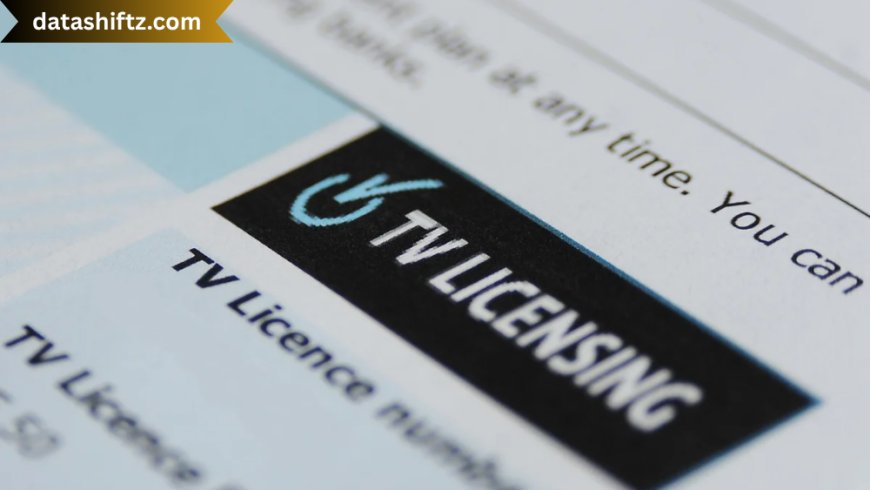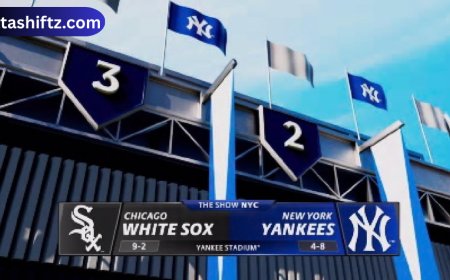TV Licence: Understanding the Cost, Need, and Modern Debate in the UK

Introduction
The TV licence has long been a cornerstone of British broadcasting, ensuring the continued operation of the BBC and supporting public service media. As the media landscape evolves—shaped by streaming, digital platforms, and on-demand content—the relevance, cost, and enforcement of the TV licence have come under intense scrutiny. This blog post explores the history and purpose of the TV licence, who needs it, how it’s enforced, the controversies surrounding it, and the future of public funding for television in the UK.
What Is a TV Licence and Why Does It Exist?
Definition and Legal Basis
A TV licence is a legal requirement in the United Kingdom (England, Scotland, Wales, and Northern Ireland) for households that:
-
Watch or record live TV broadcasts on any channel
-
Watch or stream live television content on digital platforms
-
Use BBC iPlayer to watch programmes (live or on-demand)
The licence fee funds the British Broadcasting Corporation (BBC), allowing it to operate independently of advertising or political influence.
Current TV Licence Fee (as of 2025)
| Type | Annual Cost |
|---|---|
| Standard TV Licence | £169.50 |
| Black and White TV Licence | £57.00 |
| Free Licence (over 75s receiving Pension Credit) | £0.00 |
| Business Premises Licence | Varies |
Who Needs a TV Licence and How It Works
Who Must Pay the Fee
You need a TV licence if you:
-
Watch live TV on any channel (BBC, ITV, Channel 4, Sky, etc.)
-
Use BBC iPlayer for any type of content
-
Record live TV programmes to watch later
-
Stream live content from services like Amazon Prime, YouTube TV, or Sky Go
You do not need a TV licence if you only watch:
-
On-demand services such as Netflix, Disney+, or Amazon Prime (excluding live content)
-
Non-live YouTube videos
-
DVDs or digital downloads
Situations Requiring a TV Licence
-
Watching BBC One or ITV live via Freeview or Sky
-
Streaming a live football match on Now TV
-
Recording a BBC documentary to watch later
-
Using BBC iPlayer for catch-up or live programming
-
Watching live news on your tablet via an app
Exemptions and Concessions
| Group | TV Licence Requirement |
|---|---|
| Over 75s on Pension Credit | Free TV Licence |
| Blind (severely sight impaired) | 50% discount on licence |
| Students living in halls | Covered by institutional licence |
| Students in private rentals | May need their own licence depending on setup |
| Nursing Home Residents | May qualify under a group licence scheme |
Enforcement and Penalties
How Is It Enforced?
The TV Licensing authority, managed by Capita on behalf of the BBC, enforces the fee. Methods include:
-
Letters sent to unlicensed addresses
-
Home visits by enforcement officers
-
Database tracking and matching with addresses
-
Prosecution for non-compliance
Penalties for Non-Payment
Failure to have a valid licence when required can lead to:
-
A fine up to £1,000 (plus legal costs)
-
A criminal record in some cases
-
Court appearance and further enforcement action
Enforcement at a Glance
| Enforcement Method | Description |
|---|---|
| Reminder Letters | Sent to addresses without active TV licences |
| Home Visits | Field officers may visit to inspect equipment |
| Court Action | Prosecution for persistent non-compliance |
| Payment Plans | Offered to help individuals manage licence cost |
Debate and Controversy: Is the TV Licence Outdated?
As digital consumption grows, the TV licence has become a controversial topic among politicians, media professionals, and the public.
Arguments in Favour of the TV Licence
-
Public Service Broadcasting: Supports independent journalism and educational programming.
-
No Commercial Interruptions: BBC content is ad-free and accessible to all.
-
Inclusivity: Ensures access to reliable news, children’s programming, and cultural content.
Arguments Against the TV Licence
-
Outdated Funding Model: Based on a traditional TV setup, not modern viewing habits.
-
Regressive Nature: Same fee for low- and high-income households.
-
Enforcement Concerns: Critics argue the approach is too aggressive and criminalises poverty.
-
Streaming Competition: Many consumers now rely on platforms like Netflix, making the BBC less essential.
Reform Proposals and Future Outlook
The government has indicated an interest in reforming or replacing the licence fee. Proposals under consideration include:
Possible Alternatives to the Licence Fee
-
Subscription Model – Like Netflix, where users pay only if they use BBC services.
-
General Taxation – Fund BBC from government revenues, like police or healthcare.
-
Hybrid Model – Basic free services plus a premium paid subscription for extras.
-
Advertising-Funded – Introduce ads to BBC content (widely opposed).
-
Tiered Pricing – Different rates for different income groups or usage levels.
These models aim to reflect modern media consumption without compromising the BBC’s integrity and public mission.
TV Licence Around the World
While unique in some aspects, the UK is not alone in public broadcasting fees.
| Country | Licence Equivalent | Status |
|---|---|---|
| Germany | Broadcasting fee (Rundfunkbeitrag) | Mandatory for all households |
| France | Contribution à l'audiovisuel public | Being phased out |
| Sweden | Funded via income tax | Licence abolished |
| Japan | NHK licence for owning a TV | Required by law |
| Australia | Funded entirely by government taxes | No TV licence needed |
Conclusion
The TV licence remains a crucial—albeit increasingly challenged—mechanism for funding quality public broadcasting in the UK. As the media world shifts towards on-demand, personalised, and global content, the debate around the licence’s relevance will only intensify.
While many continue to value the BBC for its impartial news, cultural depth, and global reporting, others argue for a more modern, flexible funding model that better fits 21st-century consumption habits. As the conversation evolves, one thing is certain: how we fund public broadcasting reflects what we value as a society.






























